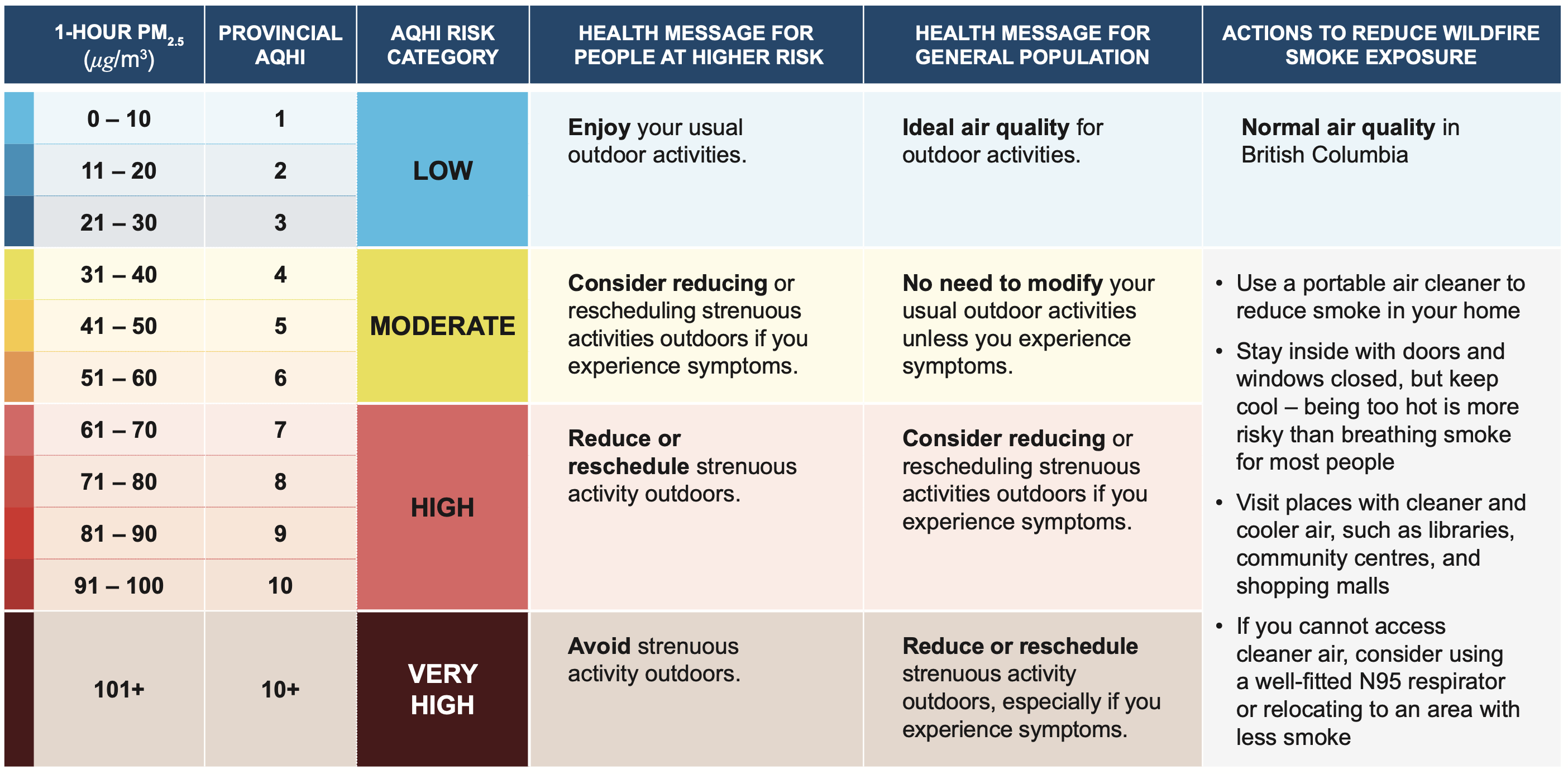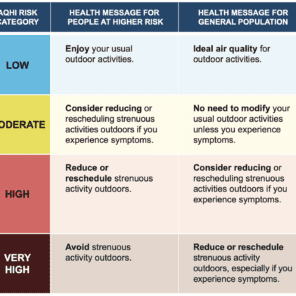Client: Environment and Climate Change Canada, Health Canada
Listing of the client in no way affirms the client's support, sponsorship, or validation in any form of Risk Sciences International or the RSI staff member(s) who conducted this project during their stay with RSI or prior to joining the company. This case study is displayed for informative purposes only to demonstrate the capacity of RSI staff members. This case study reveals no proprietary information or information deemed sensitive.
Wildfire and residential smoke risk communication
Government authorities faced recurring challenges in communicating health risks from smoke caused by both wildfires and residential burning. While these events were becoming more frequent and more severe, the public health messages often failed to resonate with affected communities or to change behavior. RSI was asked to examine the effectiveness of current communication approaches and to provide recommendations for clearer, more targeted messaging.
The project began with a literature and media review, along with interviews of government officials and air quality advocates involved in smoke response. Analysis focused on both the risk perceptions of affected communities and the content of the messages being issued. The effectiveness of the messaging was evaluated in terms of clarity, credibility, and usefulness in guiding protective behavior. RSI also examined innovative tools such as the AQHI-Plus developed by the British Columbia Centres for Disease Control, which adapts the Air Quality Health Index to reflect smoke-specific particulate exposures.
The outcome was a report synthesizing findings and setting out recommendations for improved smoke-related health risk messages. RSI then applied risk communication principles to the development of revised AQHI messages tailored for wildfire smoke and residential smoke separately. These messages were structured to improve comprehension, support informed choices, and increase protective action, thereby strengthening public health preparedness in the face of escalating smoke events.

Experts related to this case study
More RSI Case Studies
RSI presents a very small selection of case studies to highlight some of its key work.


















